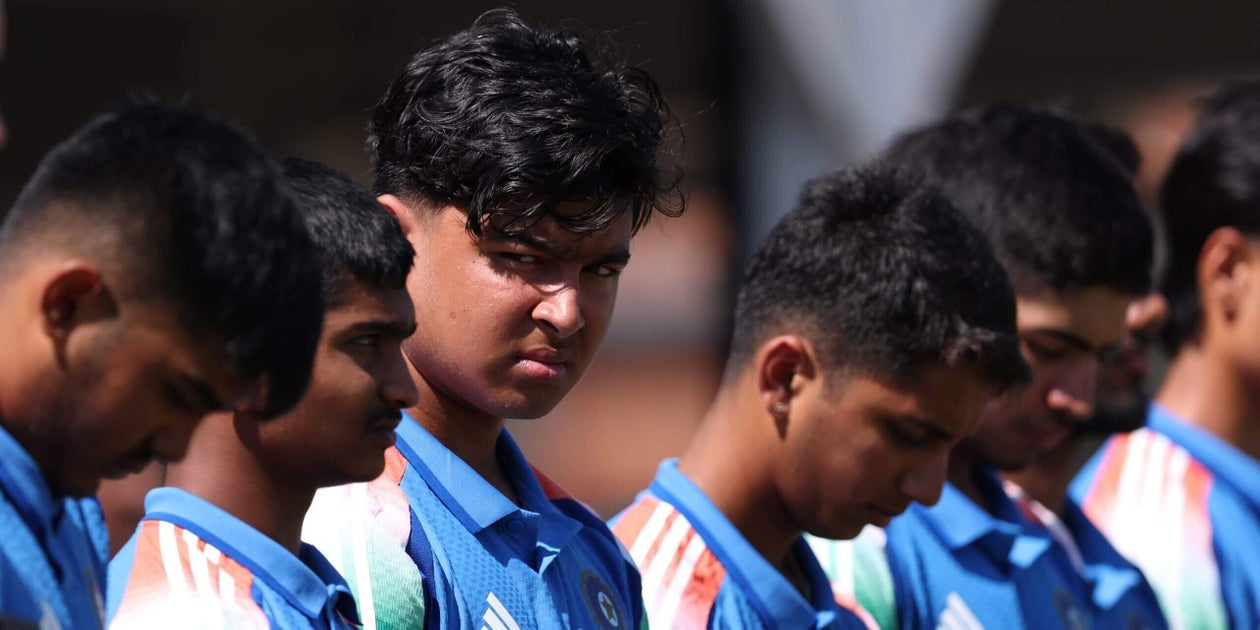Sport loves a prodigious talent, cricket particularly so. When a youngster announces themselves on the scene with a shimmering ability that defies age, expectation and cold, hard logic, it captures the imagination and leaves an indelible mark.
Cricket is hard. Sometimes ridiculously so. It is also steeped in failure, routinely leaving grown men and women questioning why they play it. The game has pushed plenty to the brink and a few more beyond. So when someone comes along and tears all that up with something verging on celestial indifference, people take notice.
Particularly if that someone is a cherubic-faced child.
When Vaibhav Suryavanshi scorched a 35-ball hundred for Rajasthan Royals in this year’s Indian Premier League at 14 years and 32 days old, he became the youngest ‘man’ to score a century in T20 professional cricket. The manner in which the teenager tore the opposition apart — his century was the second quickest on record in the competition — on one of the biggest stages in the game was remarkable.
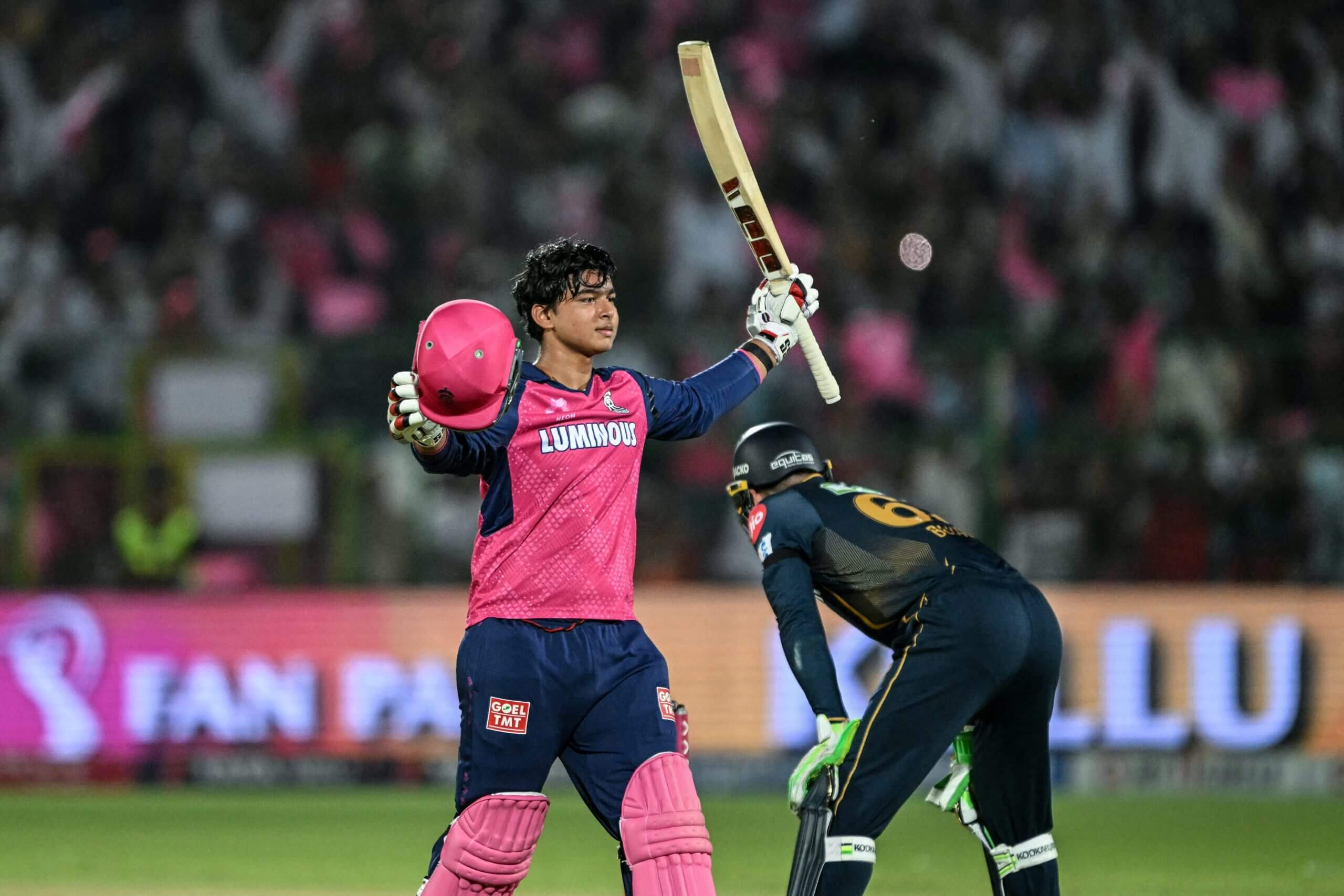
Vaibhav Suryavanshi celebrates his first IPL century in April (Sajjad Hussain/AFP via Getty Images)
Andy Flower is not a man to mince his words. “The way he played and the manner in which he handled himself was… amazing.”
England’s former iron-fisted and granite-jawed head coach won this year’s IPL with Royal Challengers Bengaluru (RCB) and witnessed the teenage batting sensation first hand. Suryavanshi, in his eyes, is an “intimidating talent”.
“He’s got this very modern swing: he picks the bat up very high and is looking to use a full swing to almost every ball,” Flower tells The Athletic. “That level of freedom is quite unnerving to play against.”
Flower suggests Suryavanshi’s freewheeling style is evocative of India’s explosively talented Rishabh Pant. “It sounds obvious to say,” he says, “but you know if you don’t get them out, then they are going to really hurt you.”
And if you do dismiss them early? Then they endure the flip side.
There was deafening silence in the Sawai Masingh Stadium when Suryavanshi was out for a two-ball duck in his very next game against Mumbai Indians as cricket turned another face towards him.
“He’s going to go through some ups and downs,” Rajasthan’s coach, Rahul Dravid, later told Star Sports Press Room. The former India stalwart also pleaded with the media to be “realistic in how you write about not only his success, but his potential failures”.
Dravid might have been trying to urge caution and balance, but it rarely works like that. Not anymore, and especially not in India, where it is trite to say cricket is akin to religion, but the fervour for the game is indeed unlike anywhere else on the planet.
IPL broadcaster JioStar claims one billion people watched the tournament across TV and mobile devices this year. The prodigy was well and truly out of the bottle.
After his century in April, one Indian journalist suggested Suryavanshi would be the topic of conversation in every Indian household. The teenager has endured his first scandal, too, with a video emerging that seems to show Suryavanshi stating his age as 18 months older than his registered age, which would put him at 16 rather than 14. Whether true or not, it hardly diminishes his extraordinary achievements.
The next innings nought and the age controversy are a microcosm of what Suryavanshi will undoubtedly face in his career. He must cope with the inevitable failures and barely comprehensible scrutiny, and whether he has the right support network around him will largely determine whether he succeeds or not.
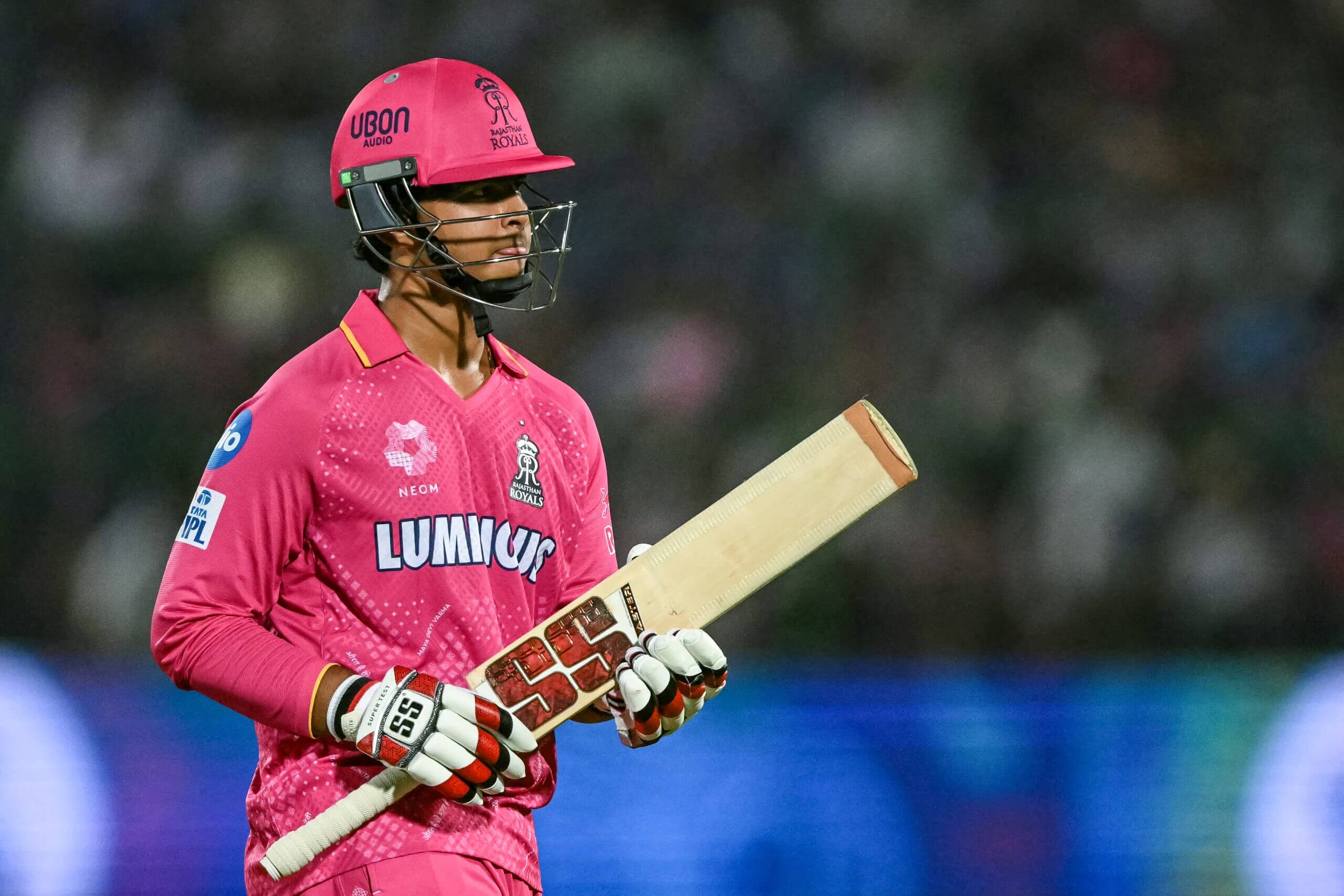
Vaibhav Suryavanshi departs after his two-ball duck (Money Sharma/AFP via Getty Images)
Cricket abounds with prodigal talent, but only a select few carry their youthful success into adulthood.
Don Bradman scored 234 and 320 not out in Australian club cricket aged 17, a hundred on debut for New South Wales at 19, the then highest first-class score of 452 not out aged 21, and the world record Test score of 334 against England at the Oval a month shy of his 22nd birthday.
Sachin Tendulkar was a schoolboy sensation with the bat. As a diminutive 13-year-old playing against older boys, he made two double centuries and seven centuries in one summer. He made his Test debut for India aged just 16 and scored his first Test century, against England in 1990, at 17. ‘The Little Master’ hung up his pads and bat 23 years later as Test cricket’s highest run scorer.
And yet, for some prodigal cricketers, it is a different story.
Take, for example, Tendulkar’s fellow teenage batting sensation Vinod Kambli or Prithvi Shaw, the boy who smashed those schoolboy records.
Kambli scored two double centuries and a brace of centuries in his first seven Test matches for India. It was a gilded start to his Test career. The run glut then tailed off rather than dried up, while the tag of ill discipline that had shrouded Kambli since his early days, especially in comparison to the princely Tendulkar, became more of an issue for team-mates and selectors.
At a particularly low ebb and seemingly grasping for answers, Kambli became unduly preoccupied by the girth of his bat handle, using nine rubber grips in one match as he struggled to capture the feeling and form with which he had arrived on the scene.
He played his last Test in 1995 aged 23.
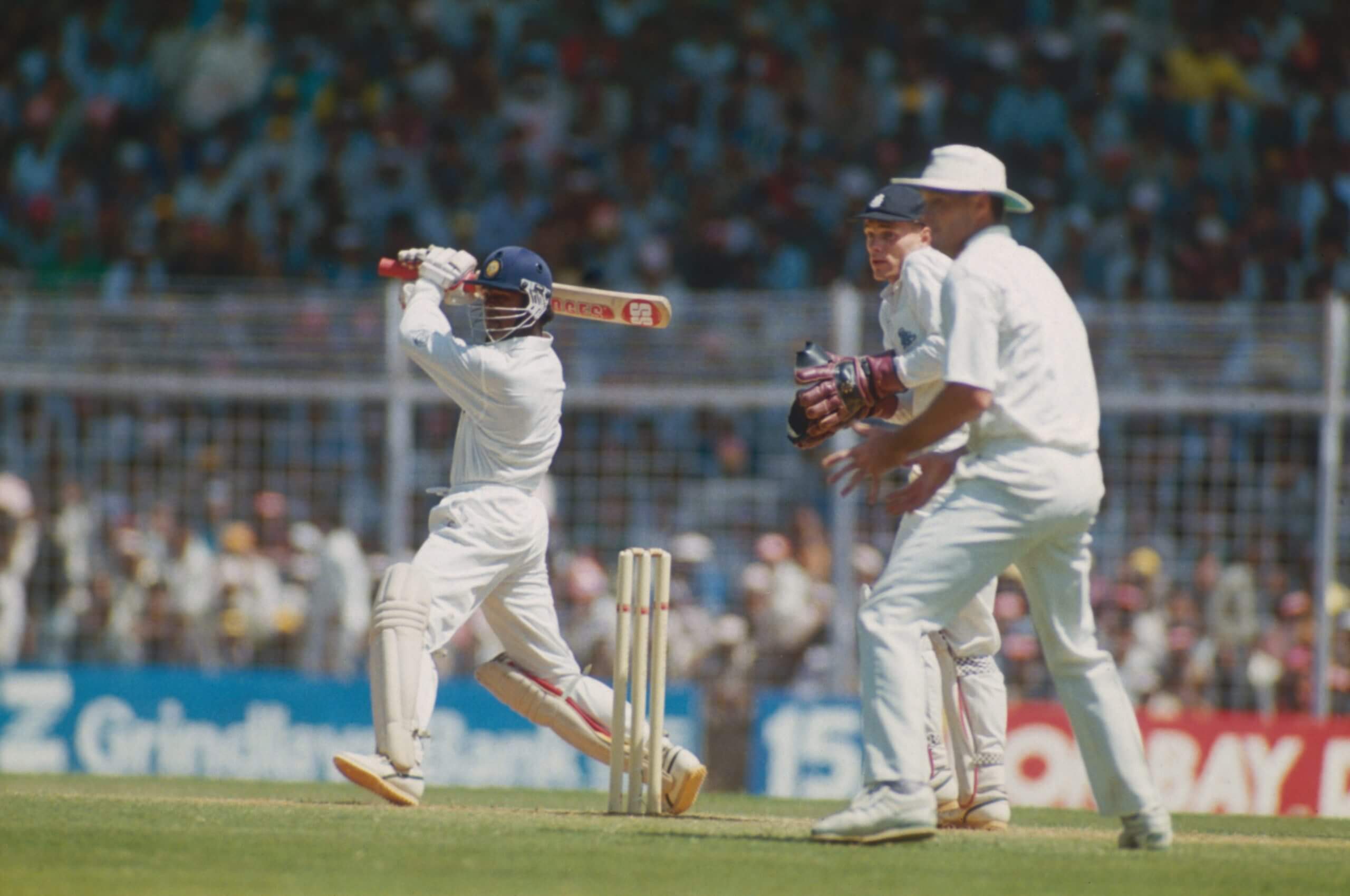
Vinod Kambli square cuts on his way to 224 against England in 1993 (Ben Radford/Getty Images)
Shaw’s story is not over yet, but after becoming the youngest Indian to make a Test hundred on debut aged 18 years and 329 days, he has suffered an Icarus-esque fall. That first Test century remains his only one. In the seven years since, Shaw has played just four more Tests, his form and fitness spiralling.
Dropped from the Mumbai squad and unselected in this year’s IPL for the first time, Shaw scored a century in a friendly match for his home state of Maharashtra at the end of August. “I don’t mind starting from scratch again,” he told reporters during the game, “because I’ve seen many ups and downs in my life.”
Shaw’s is something of a cautionary and poignant tale.
The English game might not react quite so viscerally to its young talent, but the social media noise and column inches afforded them are still plentiful. This summer has seen breakout talents such as 17-year-old Thomas Rew and Davina Perrin, 19, light up the domestic game, their present talent discussed excitedly with more than one eye on the future.
The clamour for the next big thing exists in cricket as it does in culture. The shock of the new repeats and the call of youth is irrepressible. In Australia, 19-year-old left-handed batter Oliver Peake is talked of in excitable tones as a star of the future despite having played just two first-class matches. In the second, he scored 92 for Australia A against Sri Lanka A in Darwin.
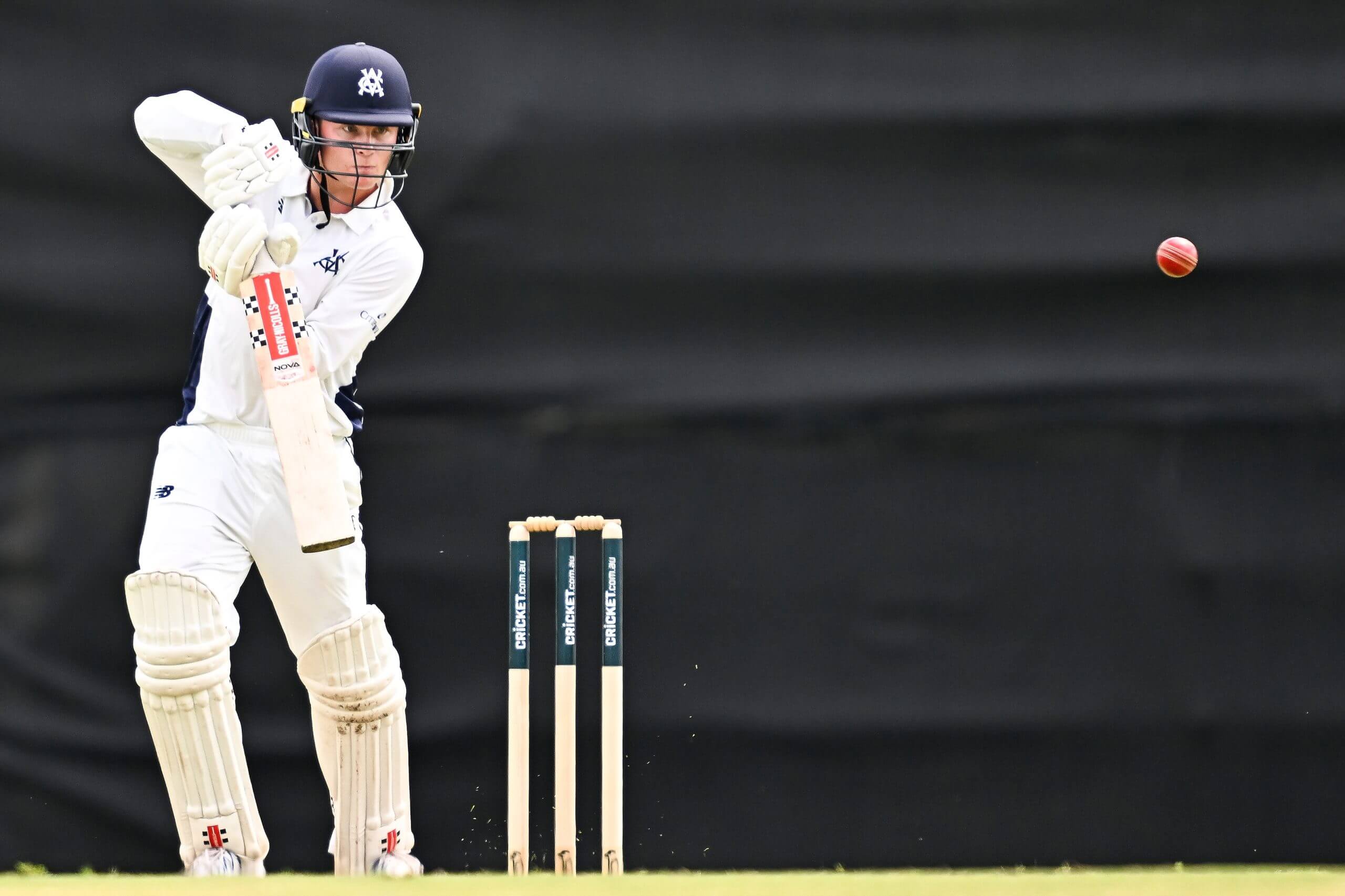
Oliver Peake playing for Victoria against Western Australia in March (Daniel Carson/Getty Images)
In England, the name of one precocious player has dominated the discourse in the past couple of years: that of Jacob Bethell.
The Barbados-born, English-schooled 21-year-old all-rounder has had a precipitous rise, scoring his first international century — his first in all professional cricket — against South Africa in Southampton. Next week, he’ll become England’s youngest-ever international captain when he leads the T20 side, breaking a century-old record. Those in the know, from team-mates, coaches, opponents and journalists, almost unanimously describe him as a unique talent.
“I first saw him play on TV at the Under-19 World Cup in the West Indies,” says Flower, Bethell’s head coach at RCB. “I’d never seen or heard about him before. It struck me straight away that he looked special.
“The next time I saw him play was in the Test series against New Zealand. What stood out for me was the fact that he could pull the quicks with such power and placement, particularly in front of square leg. When you see that against reasonable pace, it’s something that stands out.”
Flower’s director of cricket at RCB, Mo Bobat, used to work for the ECB in talent identification and had been tracking Bethell’s progress since he was a child. The franchise signed Bethell for 26million rupees (£217,000; $295,000).
“We got him at RCB at a good price because he came later in the auction — we were really happy to get him,” says Flower. “I think he’s a long-term player for us. I was very impressed with him in everything he did at RCB during the season.”
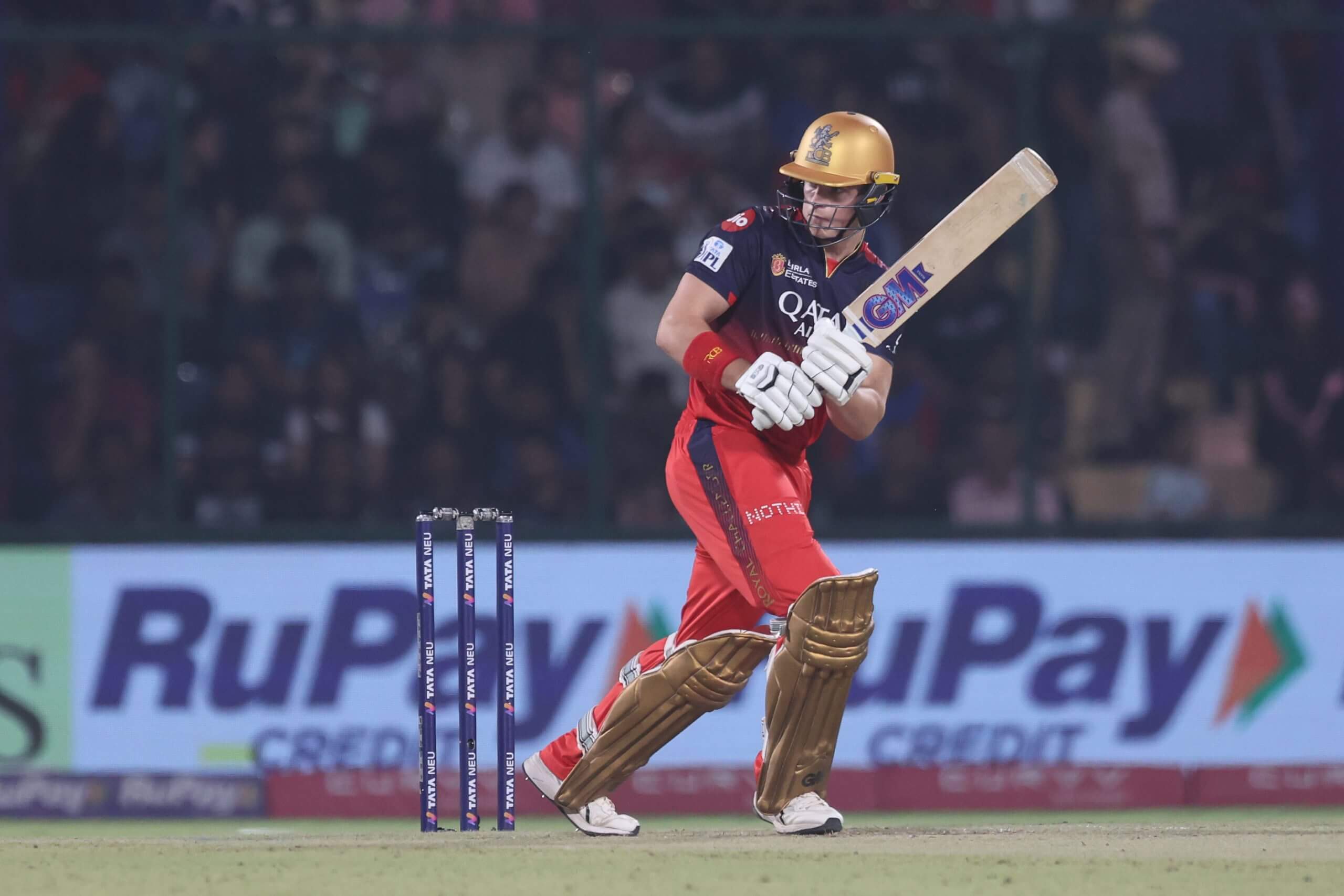
Jacob Bethell batting for Royal Challengers Bengaluru in the 2025 IPL (Pankaj Nangia/Getty Images)
Bethell scored 12 on debut, but a couple of shots off Australia fast bowler Mitchell Starc caught Flower’s eye.
“He picked him (Starc) up over square leg a couple of times,” says the head coach. “Incredible shots from good deliveries. For him to come in and do that in just a few balls, that really stood out for me. It showed class, it showed poise, it showed that he was turned on by that level of cricket rather than cowed by it.”
Bethell scored 50 in his next match. “He just looked absolute class,” says Flower. “There’s a maturity there, a confidence and an assurance of his game for one so young that really sets him apart.”
The Athletic asks Flower and his successor as England coach, Peter Moores — now coaching Nottinghamshire, with highly rated teenage off-spinner Farhan Ahmed on his books — how they negotiate nurturing a young but clearly special talent. They both spoke of marrying the responsibility of wanting to give their charges experience in pressurised scenarios while being mindful that they are still learning and quite vulnerable.
They want to hold their feet to the fire but not risk them getting burned, at least not too badly. “A graded exposure is preferable,” says Moores. “You want to make sure they’re getting the right experiences at the right time and that they have strong support networks around them.
“As they go up the levels, there’s more pressure — certainly internationally, that pressure is huge. You want them to be able to handle the success at each level as well as the failures that will inevitably come.
“You want to protect their talent and their self-belief. That is crucial. The prodigious talents that burn brightly but then lose their way, often it is because they’ve never had to question themselves and when the questions come, they can’t find the answers. Keeping the spark of self-belief alive is the most important thing.”
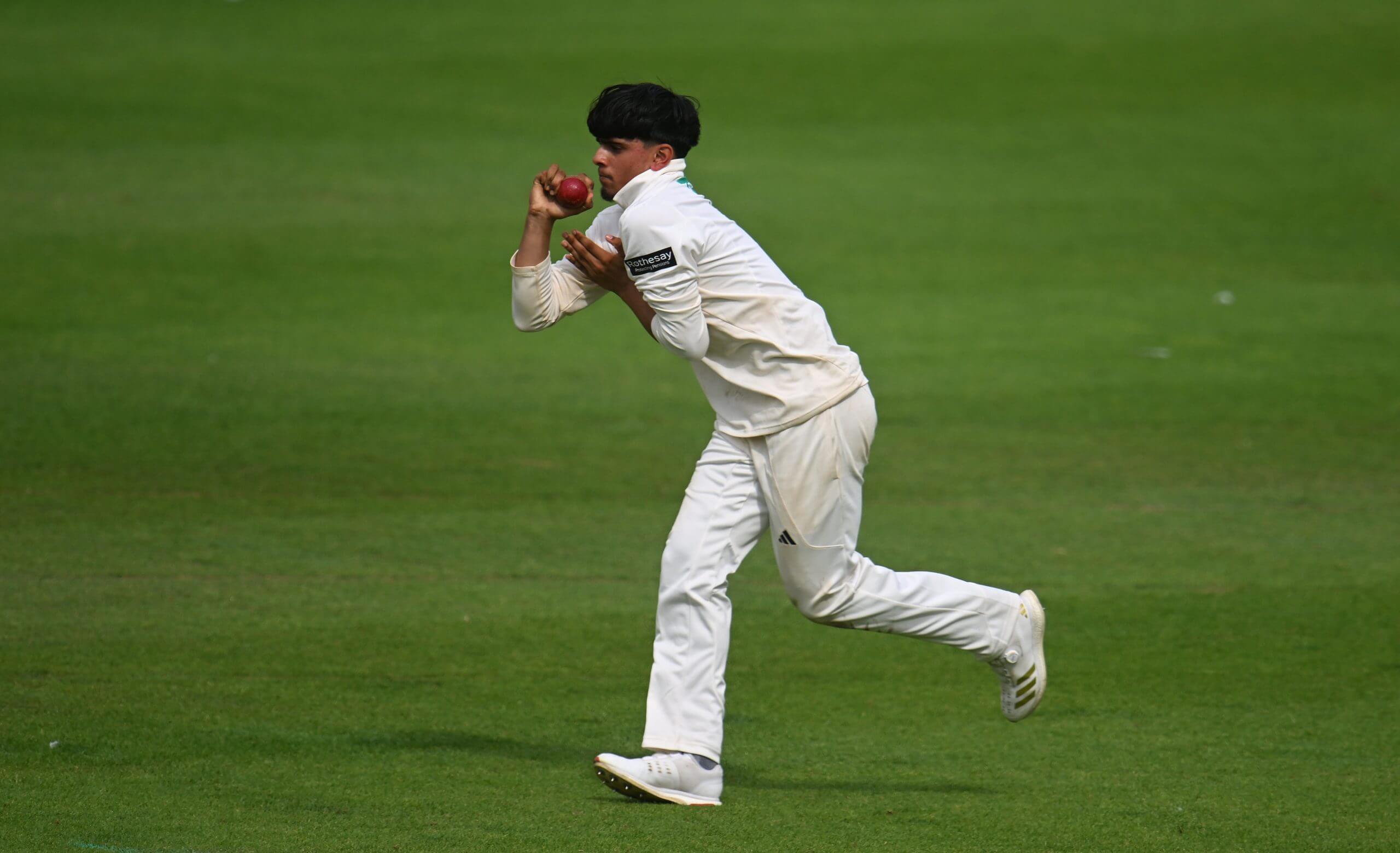
Nottinghamshire’s young spinner Farhan Ahmed (Harry Trump/Getty Images)
Flower sees that spark shining bright with Bethell.
“He has a genuine self-belief, which is so important once you get to be playing the best players in the world,” he adds. “It’s a genuine self-belief. He’s not bulls****ing. He’s not faking it and it’s not delusional either. There’s a maturity to him. He’s confident without being brash. He doesn’t say dumb things.”
The cautionary tales are out there for cricketing prodigies, but so are the success stories. Time will tell whether Bethell and Suryavanshi walk the tightrope of a modern cricketing career. Whatever happens now, the world will be watching.
Most likely from the edge of its seat.
(Top photo: Vaibhav Suryavanshi, looking at the camera, with his India Under-19s team-mates; by Michael Steele/Getty Images)

